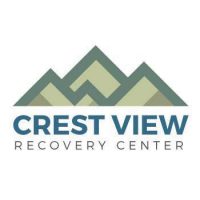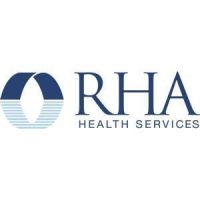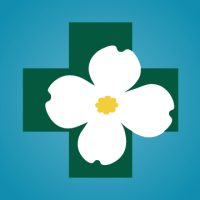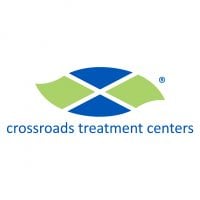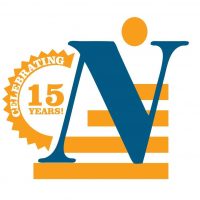Western Carolina Treatment Center
Drug Rehab Center in Asheville, North Carolina
Western Carolina Treatment Center is a CARF, SAMHSA, and state of North Carolina accredited Addiction Treatment Facility in Asheville, NC that offers evidence-based and holistic therapies to help clients achieve and maintain sobriety with access to aftercare support services, such as recovery housing and alumni programs.
About This North Carolina Facility
Western Carolina Treatment Center, located in Asheville, NC, is an Opioid Treatment Program dedicated to reducing the stigma associated with medication-assisted treatment for opioid addiction. Their experienced staff fosters a therapeutic environment conducive to recovery.
The center provides medication-assisted treatment combined with counseling and group therapy to help individuals refrain from using illicit narcotics. Founded in 1999, Western Carolina Treatment Center promotes professionalism and best practices to ensure quality care in an accessible, friendly, and secure setting.
Fully accredited by CARF, SAMHSA, and State License, the center specializes in medication-assisted therapy using buprenorphine, Vivitrol, and naltrexone. They implement evidence-based approaches, including cognitive behavioral therapy, motivational interviewing, and family therapy.
- Comprehensive addiction treatment services
- Medication-assisted therapy for opioid addiction
- Evidence-based counseling approaches
- Supportive therapeutic environment
Western Carolina Treatment Center focuses on treating opioid addiction, substance abuse, dual diagnosis, drug addiction, alcoholism, and mental health issues. They offer various levels of care, such as aftercare support, detox, drug rehab, inpatient, and outpatient services.
For individuals struggling with opioid addiction, Western Carolina Treatment Center provides a comprehensive approach to recovery. Through medication-assisted treatment, counseling, and a supportive environment, the center helps individuals regain control over their lives and work towards a brighter future.
Genders
Ages
Modality
Additional
Accreditations
State License
SAMHSA

CARF
The Commission on Accreditation of Rehabilitation Facilities (CARF) is a non-profit organization that specifically accredits rehab organizations. Founded in 1966, CARF's, mission is to help service providers like rehab facilities maintain high standards of care.
Conditions and Issues Treated
Recovering from any type of substance abuse is a long process, but it is one of the most worthwhile and life changing events any addicted person will ever go through. This is a combination of detoxing the body, rehabilitation, and recovery. There is also therapy, aftercare, and support during the entire process.
While substance abuse can take over a person’s life, it is something that can also be overcame by professionals at Western Carolina Treatment Center in Asheville, NC
With so many people struggling with opioid addiction, opioid addiction treatment is more critical than ever before. Patients often take opioids when they face a painful injury. When someone begins taking opioids such as Vicodin or oxycodone differently than how the medications were prescribed, this points to opioid addiction.
Stopping these types of medications abruptly is not safe. That is where opioid addiction treatment at Western Carolina Treatment Center in Asheville, NC comes in. Most opioid addiction treatment facilities start with detox and move to rehabilitation services while providing medical support during the process.
Getting over an opioid addiction takes time and determination, but with the right support and resources, those struggling with opioid addiction can recover and move forward with their lives.
Levels of Care Offered at Western Carolina Treatment Center
This center offers a variety of custom treatment tailored to individual recovery. Currently available are Aftercare Support, Detox, Drug Rehab, Inpatient, Outpatient, with additional therapies available as listed below.
Detox is a drug rehab process that begins before the actual drug rehab treatment. It is used to remove any residual toxins left in your body (and brain) after using drugs, and it is used with the intent to help you or your loved one complete drug rehab.
If you are addicted to opiates like heroin, methadone, or prescription painkillers, you will detox with medication. This is because the withdrawal symptoms are often more intense and uncomfortable for an opiate addict than for someone who has abused or is dependent on other drugs, like cocaine.
Inpatient rehab programs like what’s offered at Western Carolina Treatment Center in Asheville, NC are ideal for covering all the bases that surround one’s addiction. It’s considered the most comprehensive approach to care for people afflicted with addiction. Patients live in a facility where they have access to therapy and medical care 24/7.
Outpatient treatment is treatment that occurs when a patient is not checked into a rehab facility. The patient may show up for therapy sessions, go through detox and engage in other therapies to help them recover. However, they will do so while they live at home in North Carolina.
Outpatient therapy provided by Western Carolina Treatment Center is usually recommended as a follow up to inpatient therapy. It helps patients adapt to their normal lives after treatment. In some cases, it can also be an alternative to inpatient treatment. People may choose this route if they are unable to leave their jobs, children or if they don’t have the money for inpatient treatment. However, inpatient treatment is the best way to recover from addiction.
Therapies & Programs
Individual professional counseling or individual therapy refers to the one-on-one interaction between a patient and his or her counselor. Individual therapy allows for more privacy, one that group interactions can’t provide. Therefore, it becomes easier for a person to unload and become more open to his or her counselor.
Another benefit of individual therapy at Western Carolina Treatment Center in Asheville, NC is that all sessions aim to speed up a single person’s progress. It makes it easier for the counselor and the patient to deal with the central issues, which are likely the culprits of substance addiction.
Once the roots of the problems are addressed, it becomes less challenging for a recovering patient to maintain sobriety and brush off temptations.
Families are not always as supportive as they could be, but by opting for family therapy, many recovering addicts are able to understand their addiction and get the support they need to get sober. These therapy sessions at Western Carolina Treatment Center in Asheville, NC involve all members of the family who play a role in the recovering person’s daily life. They work together to overcome past issues, avoid triggers, and remain strong and supportive of each other.
In group therapy, the patient undergoes sessions with other patients dealing with similar problems under the guidance of a trained counselor. The members of the group interact with each other and talk freely about their issues. The recovery of members of the group from the problems that they face gives the patients confidence that they can also overcome their addiction.
Group therapy at Western Carolina Treatment Center reduces the feeling of loneliness and improves the coping skills of the patients. Group therapy provides patients with continuous feedback from other members. The group dynamics ensure that members start having some structure and routine in their lives.
Dialectical behavior therapy (DBT) is a method of individual and/or group counseling that focuses on acceptance and change. DBT can be very effective in developing coping strategies for negative emotions.
Cognitive behavioral therapy (CBT) is a way of addressing concerns through talking. Talking through issues can identify sources of discomfort or unhealthy thoughts. CBT is a healthy way Western Carolina Treatment Center addresses some behaviors which may be bringing unintended consequences in a persons life.
The 12 step program is the treatment method used by Alcoholics Anonymous, but it can apply to any type of addiction. It outlines the 12 steps addicts should take on the path to recovery. Steps include admitting you have a problem and making the decision to turn your life around. A belief in a higher power and making amends to others are also part of the program.
Payment Options Accepted
For specific insurance or payment methods please contact us.
Additional Details
Specifics, location, and helpful extra information.
Asheville, North Carolina 28804 Phone Number(828) 251-1478 Meta DetailsUpdated April 15, 2024
Staff Verified
Patient Reviews
There are no reviews yet. Be the first one to write one.
Asheville, North Carolina Addiction Information
North Carolina ranks 29th in the nation for overall substance abuse. Many of the drugs abused in the state are illicit, and many of these are opioids. Prescription opioids are readily available due to the high rates of medical workers prescribing them. The number of prescriptions has increased tenfold since the 1980's. Opioid overdoses are the most common type of death in North Carolina.
The drug addiction problem in Asheville, North Carolina, is relatively bad. About 7.4% of Asheville residents aged 12 or older reported using illicit drugs. Additionally, nearly 12% of Asheville residents reported misusing prescription drugs in the past year. The most commonly used drugs are marijuana, cocaine, and heroin. Asheville, North Carolina, is a vibrant city with plenty to do. There are plenty of local and nearby rehab centers for treatment.
Treatment in Nearby Cities
- Shelby, NC (61.6 mi.)
- Murphy, NC (91.2 mi.)
- Fuquay-Varina, NC (211.1 mi.)
- Banner Elk, NC (53.7 mi.)
- Gold Hill, NC (124.8 mi.)
Centers near Western Carolina Treatment Center
The facility name, logo and brand are the property and registered trademarks of Western Carolina Treatment Center, and are being used for identification and informational purposes only. Use of these names, logos and brands shall not imply endorsement. RehabNow.org is not affiliated with or sponsored by Western Carolina Treatment Center.






